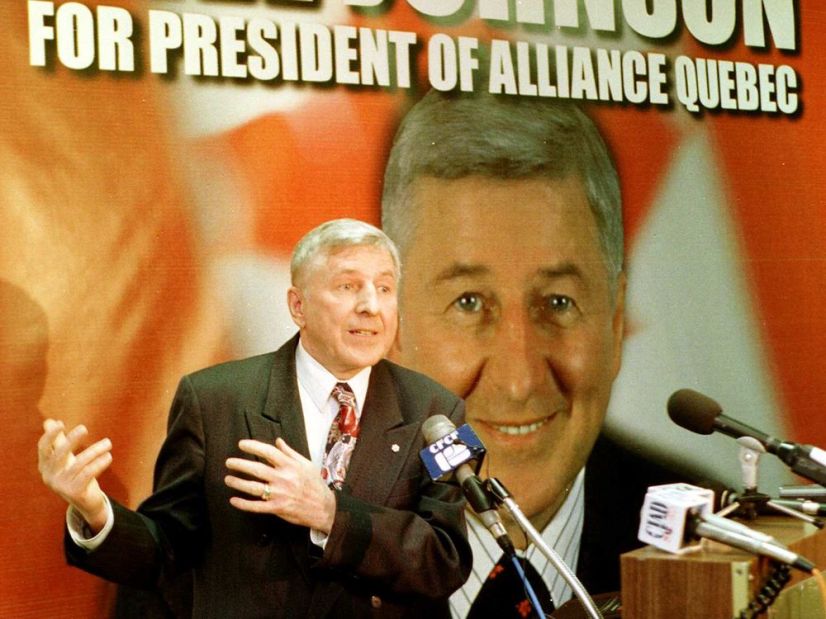William Johnson inspired me and others to get involved in politics instead of just giving up and leaving Quebec, Robert Libman says.
Canada has lost one of its most ardent and articulate defenders of minority language rights this week. Very few people understood the mindset of both Quebec solitudes as did William Johnson, whose mother was francophone and his father was anglophone. He was educated at Collège Jean-de-Brébeuf and held an MA in French literature from the Université de Montréal. Yet despite being a francophile, perfectly bilingual, highly educated and immersed in the French language and culture, he was unfairly branded as anti-francophone and a radical for being a relentless critic of Quebec nationalism and the coercive aspects of Bill 101.
This is an unfortunate reality in this province and country for anyone who is outspoken in defending the rights of Quebec’s English minority. His columns used forceful language and he didn’t shy away in criticizing what he felt was discriminatory at a time when few had the guts to do so. His columns and analyses were always honest and insightful, with a historical and intellectual underpinning. This was very refreshing and provided a morale boost for many Quebec anglophones who were feeling increasingly disenfranchised in the 1980s as the Quebec Liberal Party under Robert Bourassa was adopting a more nationalist position on language in order to outflank the Parti Québécois.
Our community leadership and establishment were hesitant to speak too forcefully for fear of rocking the boat and supposedly stoking the nationalist fires. By contrast, his columns and frequent appearances on television inspired me and others at the time to get involved in politics instead of just giving up and leaving Quebec like so many others of our generation. He gave us the shot in the arm we needed to work toward providing an alternative for anglophone Quebecers in the 1989 provincial election after Bourassa reneged on his promise to ease certain restrictions in Bill 101. We created the Equality Party and it was then I met Johnson for the first time as I nervously asked him whether he would run for the party in the upcoming election. He refused, as he felt that his pulpit as a journalist was far too valuable to the cause.
In that election, we rocked the nationalist media and our own establishment by electing four members to the National Assembly, making the Liberal government question whether they had gone too far in turning their backs on their anglo constituency. He confided to me years later that he had sometimes harboured regrets that he didn’t run in that election.
When Johnson finally did enter the political arena of sorts years later and became president of Alliance Quebec, he refused to conform or nuance his tone and conviction, as his predecessors had done. He was never one to compromise his true beliefs, which were driven by the absolute primacy of individual rights and freedoms. This brought him into conflict with certain other members of the community and the organization who were prone to take a less assertive approach, and eventually led to his departure.
As members of a minority community, we Quebec anglophones are programmed to know our place. It’s not easy sticking your neck out of the crowd, particularly when you are speaking on behalf of the minority in this province. The Quebec political class and nationalist media are very intimidating and tend to come down very hard on anyone who speaks up for anglo rights, quickly dismissing them as a radical.
William Johnson was never willing to play by those rules and understood that by showing weakness, we render ourselves even more vulnerable. He was a rare breed and will be missed, as he had continued to write opinion pieces and spar with Quebec’s nationalist media up until very recently.
Robert Libman is a former MNA and was leader of the Equality Party in the National Assembly.

























